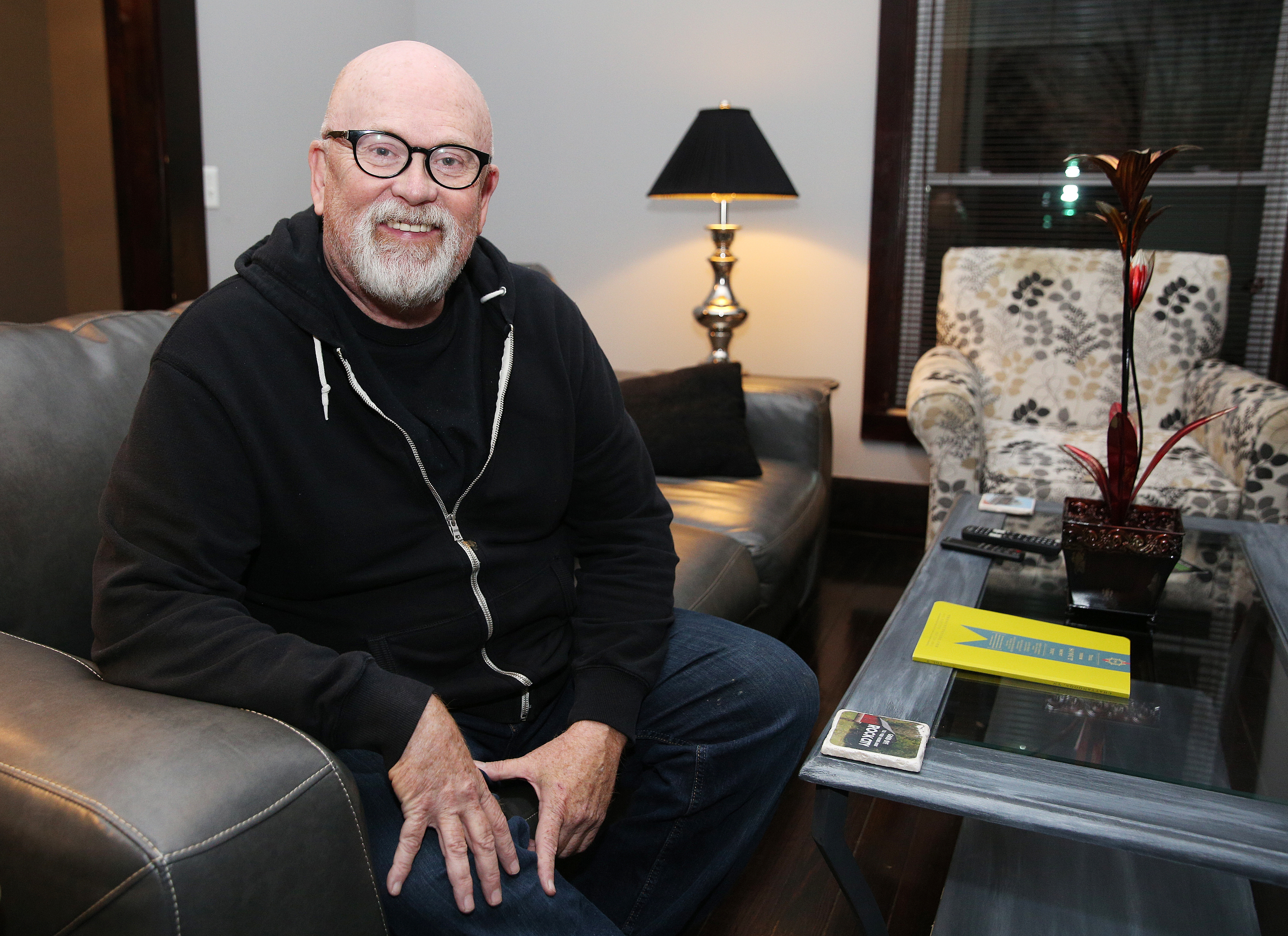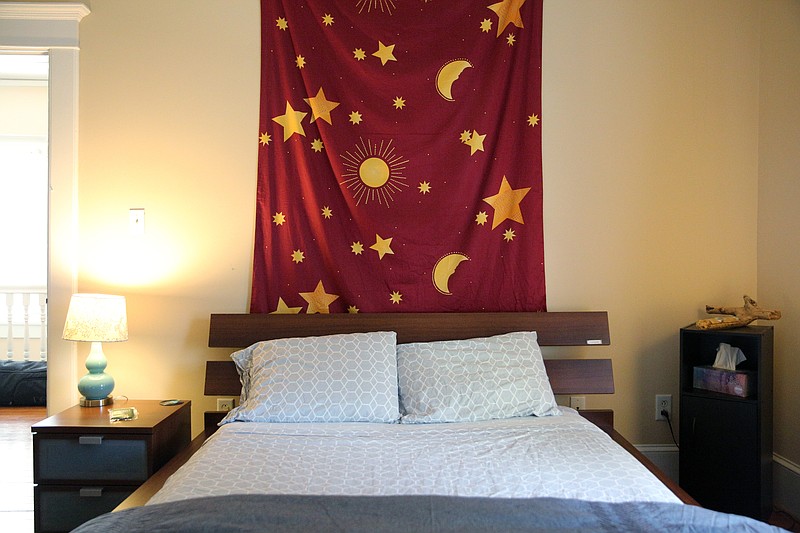Chattanoogans and their neighbors are making a bundle on bed space.
In 2017, some 53,000 people visiting Chattanooga booked rooms through internet company Airbnb, earning local hosts some $5.2 million, the company said Thursday. That's compared to 24,600 guests and $2.5 million in 2016.
Another 10,000 or so stayed in towns such as Lookout Mountain, Cleveland and Ooltewah, the company said. This year, Chattanooga is the No. 4 home-sharing market in Tennessee, behind Nashville, Memphis and Sevierville, Airbnb spokesman Benjamin Breit said in a news release.
"Nearly all of the cities in the Chattanooga region achieved over 100 percent year-over-year growth in guest arrivals," Breit said in the release.
 Phil Cross poses for a photo in the living room of his Chattanooga, Tenn., home Wednesday, Nov. 29, 2017. One thing that sets Cross apart from many Airbnb hosts in the Chattanooga area is that he's paid sales tax to the state and bed tax to the city and county since he started renting out rooms about two years ago.
Phil Cross poses for a photo in the living room of his Chattanooga, Tenn., home Wednesday, Nov. 29, 2017. One thing that sets Cross apart from many Airbnb hosts in the Chattanooga area is that he's paid sales tax to the state and bed tax to the city and county since he started renting out rooms about two years ago.Fast facts
Figures released Thursday by AirBnB show local members hosted almost 62,000 people and earned right at $6 million in 2017.› Chattanooga: 53,000 people, $5.2 million› Lookout Mountain: 4,400 people, $389,000› Cleveland: 1,600 people, $123,000› Ooltewah: 1,600 people, $148,000› Signal Mountain: 1,300 people, $133,000
And that's just one online company. VRBO, HouseTrip, FlipKey and other companies are out there, too.
This year, the city of Chattanooga took steps to rein in what some have called the "Wild West" of the hospitality industry, setting up a special district for short-term vacation rentals and a process for property owners to participate.
The city council voted in June to enact the district plan, which would allow short-term rentals in an area bounded by Lookout Valley and Missionary Ridge and including a large part of the North Shore. It requires property owners in the district to get a city permit and to collect local hotel-motel taxes.
Actually getting procedures up and running is a work in progress.
City spokeswoman Marissa Bell said that since the rules took effect Oct. 1 the city has received 54 permit applications. Earlier this month, the Times Free Press reported, the Chattanooga Airbnb Facebook page had 111 members.
That report related how the county is working to track down short-term rental hosts who aren't collecting and remitting room taxes. The county charges a 4 percent room tax, as does Chattanooga, and there's 9.25 percent sales tax tacked on.
County Trustee Bill Hullander said he wished Airbnb would collect those taxes up front, rather than the county having to rely on property owners.
Breit said Thursday the company is working with the trustee's office to make that happen. He said Airbnb already has 350 tax agreements with local governments in place.
"Can't make any promises until the deal is done, but we are certainly cautiously optimistic," Breit said.
Just last week, council members voted to hire San Francisco-based Host Compliance LLC to monitor and administer the fast-growing hospitality sector in Chattanooga.
Learn more
See Chattanooga’s rules for short-term rental permits at www.chattanooga.gov/economic-community-development/land-development-office/short-term-vacation.
The one-year contract is for $40,000 a year, with four, one-year renewals available.
Host Compliance founder and CEO Ulrik Binzer said Thursday the company's job will be to "help the city stay on top of this market" so providers comply with the city's rules.
The vendor will set up an online permitting portal for people who want to get into short-term rentals, and operate a 24-hour hot line so the city can take action against complaints or nuisances, such as a loud party house, Binzer said.
Bell said that since the ordinance went into effect, monitoring has "mostly been complaint-driven."
Now, she said, Host Compliance will have a list of permit holders and will monitor more than 20 websites to find property owners who are operating without permits. Those people will have 30 days to get into compliance or face a citation, she said.
Binzer said the monitoring process uses proprietary algorithms to "make sure everyone plays by the rules."
"We'll let the city know who's cheating," he said.
Contact staff writer Judy Walton at jwalton@timesfreepress.com or 423-757-6416.
